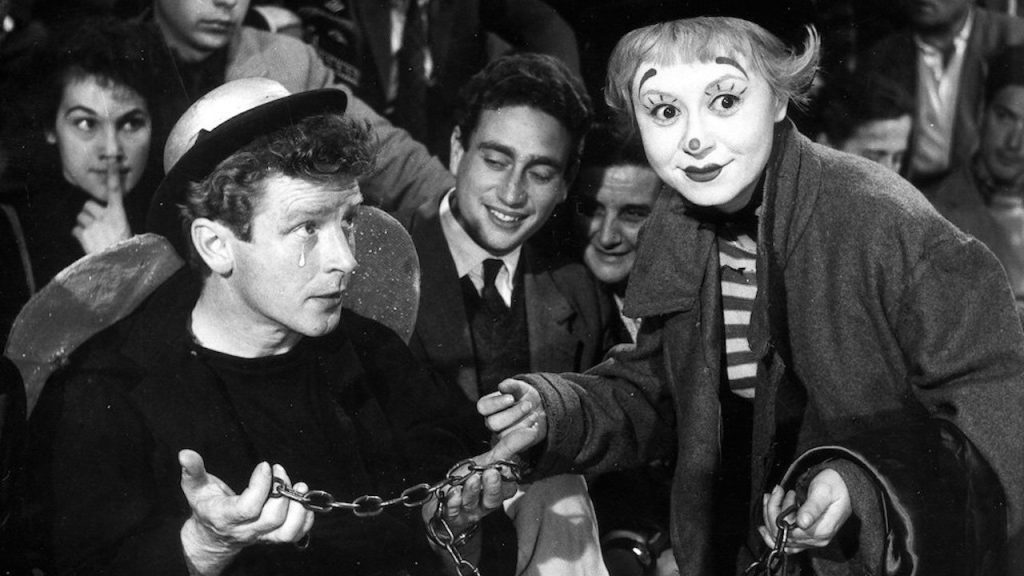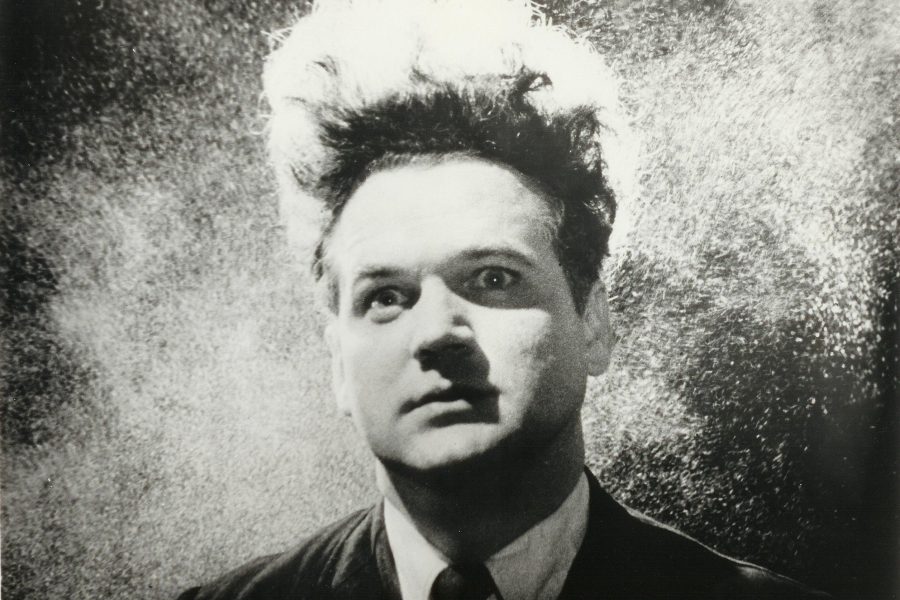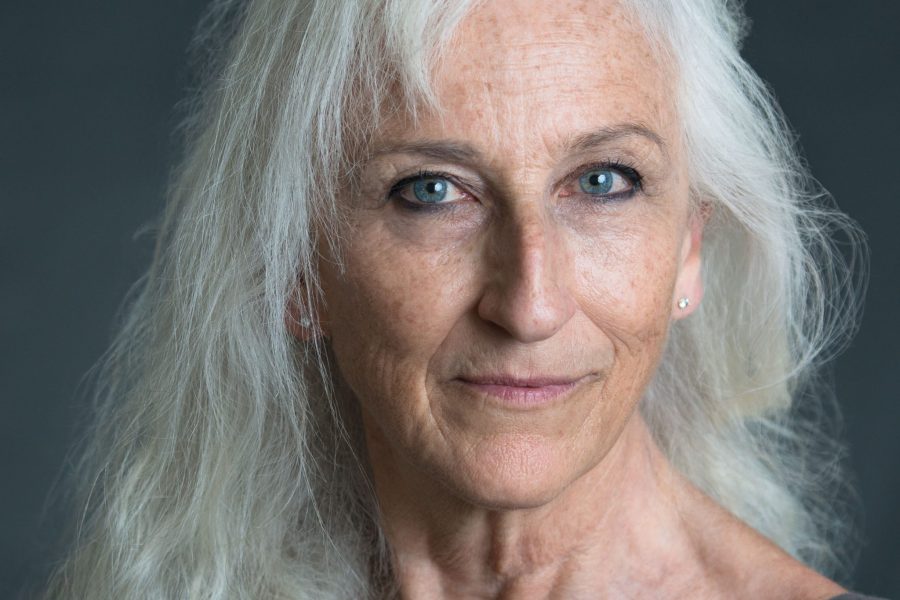An Italian drama following the story of Gelsomina, a gentle young woman sold by her mother to a brutish strongman, Zampanò. The 1954 film marks director Federico Fellini’s departure from the neorealist style which characterised his earlier works, instead embracing a poetic, bittersweet, and fable-like narrative style. Despite a tumultuous production and initially negative reception, the film won the first Academy Award for Best Foreign-Language Film and has since been widely hailed as one of Fellini’s greatest works.
This film has been selected by writer Annamaria Murphy. Anna has written extensively for Kneehigh Theatre and BBC Radio 4 and is currently Artistic Director and Lead Writer at the Writers’ Block in Redruth.
ANNAMARIA MURPHY: INTRODUCTION
When I was asked to choose a film for an Artist’s Choice night, it was both a lovely thing and mildly stressful. What to choose? Also, probably the nearest thing to being asked to be on Desert Island Discs, which I’m sure we’ve all fantasised about. There are so many brilliant films around at the moment – The Banshees of Inisherin, Women Talking, Enys Men, Long Way Back – another road movie.
But I thought you’d probably all seen those. I had a shortlist of about ten, then whittled it down to Big Fish, The Singing Ringing Tree…bizarre Czech fairytales from my childhood, and La Strada.
La Strada means ‘the road’ and it is essentially a road movie. It was the first recipient of an Oscar in 1957 for Best Foreign-Language Film. It stars Giulietta Masina, who was Fellini’s wife at the time, and a Mexican American actor, Anthony Quinn.
It tells the story of Gelsomina, a true innocent, sold by her mother to a brutish circus strong man, Zampanò. The making of the film was so long and tortuous that it partly caused Fellini to have a breakdown and, when it was first shown at the Venice film festival, it was castigated and even caused a public row between Fellini’s supporters and critics. But later became known as one of the most influential films ever made.
I’m fascinated where ideas come from.
From what I can gather, the film arose from a pervading feeling of melancholy in Fellini, and impressions of when he worked in music halls, and a memory of a man, a pig castrator who bedded all the village girls, impregnating one of them, who gave birth to a child who the villagers called ‘the devil’s child’.
Then, at the same time, Tullio, who co-wrote La Strada, was travelling on the winding mountain roads to Turin and saw a covered cart being pushed uphill by a tiny woman and told Fellini he needed to make a film about the story of her life and struggles.
Fate, imagery, fragments.
This film is not La Dolce Vita, Fellini’s most famous film. There are no beautiful women in fountains, or hedonist bars in baroque buildings.
On watching it again, I wondered why I’d chosen it, as it’s dark, and – trigger warning – contains what essentially is a rape. I worked in Hong Kong as a young woman, in a dubious bar, and once a week there was a foreign-language film club that I used to go to on my night off. That’s when I first saw La Strada and it haunted me. I realised that I recognised something in it.
My dad studied opera as a young man, and so could speak smatterings of Spanish and Italian, and, after he was demobbed from the navy when the war finished, he travelled around Italy and Spain with his guitar, so I was bought up hearing my dad singing and playing flamenco and Italian folk songs.
And when I got older he talked about the devastation that Mussolini, like all dictators in the end, and the war brought to Italy. He remembered people, mostly women, selling anything in the streets, by the side of the road – themselves, a single shoe, a rusty frying pan. Also, and most vividly, thousands of people on the move, belongings on carts, families sleeping in wagons. And he told stories of weird and wonderful street acts by people who had probably never performed before, but would try anything to survive.
I’ve seen this all over the world of course, especially in places where there is no welfare system to speak of. On a trip to Bogota with Kneehigh Theatre: everyone has a business on a cart, or a street act, guinea pig circuses, Jesuses carrying crosses, Colombian Elvis impersonators, audiences with Fidel Castro look-alikes.
My own practice over the last ten years or so has been going on a series of walking journeys with my notebook. When your antenna is out, you come across the ordinary extraordinary: budgies corner, the story of a man who kept a hundred budgies in his house and was found covered in them when he died in his armchair; coming on a woman dressed as a pink angel in the tiny hamlet of Talland whilst doing a Radio 4 Rambles with Claire Balding; Kenny Trengove, who kept wolves and a circus bear up behind Troon. Modern folk tales really.
To me La Strada has this quality and we see the world through Gelsomina’s innocent eyes, in all its brutality, poverty and beauty.
My Friend Brett Harvey, who made Long Way Back – a masterpiece I think, though emotionally devastating – said of the main character that he reckoned he’d given him what he needed to carry on. Zampanò’s tragedy is that I reckon he had what he needed, but squandered it. See what you think.
Delivered Thursday 9 March, 2023.


